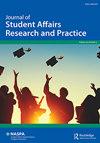金属铜对重金属径流区植物生长发育的影响
IF 0.8
Q3 EDUCATION & EDUCATIONAL RESEARCH
引用次数: 1
摘要
本项目测定了重金属径流环境下金属石斛对农业植物生长的影响。众所周知,重金属会对环境产生负面影响,特别是以径流的形式。重金属通常在植物根系中积累,抑制植物体内养分和水分的输送。在这个项目中,被测试的重金属包括锌,它会阻止营养物质输送到叶子上;镍,抑制蒸腾和光合作用,损害新陈代谢;铜会导致蛋白质变性和破坏土壤活力。C. metallidurians是一种已知具有抗重金属质粒和质粒决定因子的细菌,它们分别针对不同的重金属,其中cnr对铜和镍具有抗性,chr对铜和锌具有抗性,而cop对铜具有特异性抗性。以前已经知道C. metallidurans可以解毒高浓度的铜和金。他们更出名的是,从接触铜金属中抽出金块。由于其他重金属对C. metallidurans的影响还没有得到很好的研究,本项目旨在研究锌、镍和铜等其他重金属的影响,并将这种相互作用应用于农业的现实生活场景,看看这种细菌是否能够最大限度地减少重金属径流污染的损害。本文章由计算机程序翻译,如有差异,请以英文原文为准。
The Effects of Cupriavidus Metallidurians on Plant Growth and Development in Areas with Heavy Metal Runoff
This project measures the effects of C. metallidurians on agricultural plant growth in environments with heavy metal runoff. Heavy metals have been known to negatively impact the environment specifically in the form of runoff. Heavy metals usually accumulate plant roots and inhibit nutrient and water transportation within plants. lIn this project, heavy metals being tested include Zinc, which prevents nutrients from being transported to the leaves; Nickel, which inhibits transpiration and photosynthesis and impairs metabolism; and Copper, which can cause protein denaturation and corrupt soil viability. C. metallidurians are a type of bacteria known to have heavy metal resistant plasmids and plasmid determinants specifically directed towards a different heavy metal each, with the cnr being resistant to copper and nickel, chr being resistant to copper and zinc, and cop being resistant to specifically copper. C. metallidurans have previously been known to detoxify high concentrations of copper and gold. They more famously have been known to pump out gold nuggets from exposure to copper metals. Since the effects of other heavy metals on C. metallidurans are not as well studied, this project aims to study the effects of those other heavy metals such as Zinc, Nickel, and Copper and apply this interaction to a real-life scenario of agriculture to see if this bacteria may be able to minimize the damage of Heavy Metal Runoff pollution.
求助全文
通过发布文献求助,成功后即可免费获取论文全文。
去求助
来源期刊

Journal of Student Affairs Research and Practice
EDUCATION & EDUCATIONAL RESEARCH-
CiteScore
2.40
自引率
9.10%
发文量
50
期刊介绍:
The vision of the Journal of Student Affairs Research and Practice (JSARP) is to publish the most rigorous, relevant, and well-respected research and practice making a difference in student affairs practice. JSARP especially encourages manuscripts that are unconventional in nature and that engage in methodological and epistemological extensions that transcend the boundaries of traditional research inquiries.
 求助内容:
求助内容: 应助结果提醒方式:
应助结果提醒方式:


